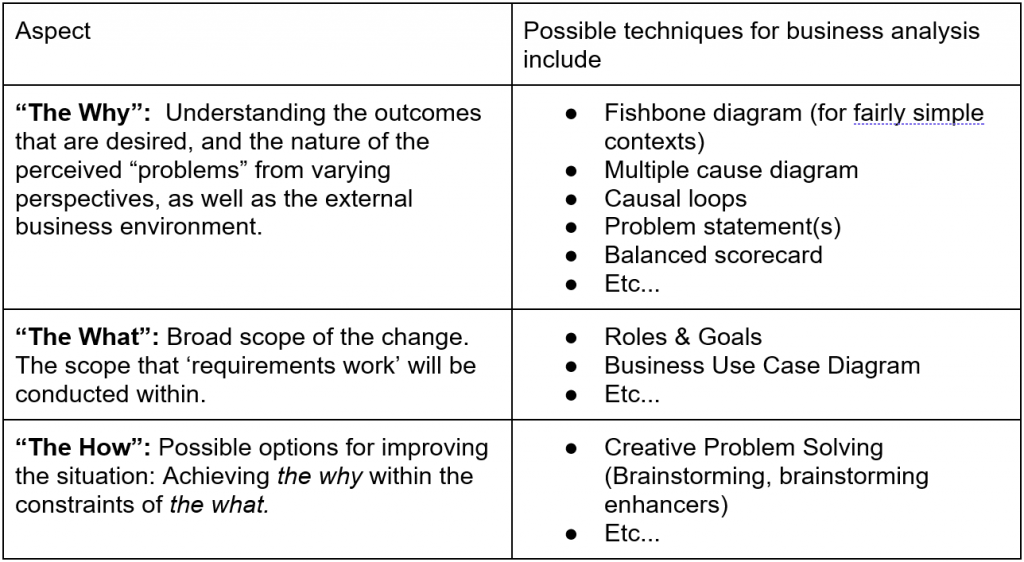This article was written in July 2020, in the midst of the global COVID-19 pandemic.
The past few months have acted as a catalyst for change in most, if not all organisations. Projects that seemed important before the outbreak of COVID-19 suddenly seemed frivolous, and I suspect many of us had to re-evaluate how we do our work in changed circumstances.

Adrian Reed, Principal Consultant / BA, Blackmetric
Adrian will be presenting the following course via live streaming: ‘Pre-Project Problem Analysis: Practical Techniques for Early Business Analysis Engagement‘
He will also be presenting the following courses with James Robertson of the Atlantic Systems Guild via live streaming: ‘Mastering the Requirements Process: Getting Requirements Right‘ 21-23 April 2021 and ‘Business Analysis Agility‘ 13-14 May 2021
Adrian spoke at the virtual Business Analysis Conference Europe 21-23 September 2020 and at the virtual IRM UK Business Change & Transformation Conference Europe 26-29 October 2020
As life slowly gets back to something that resembles a form of new normality, we need to start asking ourselves hard questions about how we’ll handle organisational change in the future. With a recession seeming likely it seems logical that organisations will need to be adaptable whilst also ‘doing more with less’. Understanding the real outcomes, objectives and nature of the perceived “problems” before a project starts is more important than ever.
The Danger of the “Solution Illusion”
I have a confession to make. I have a house full of gadgets that I bought because they “seemed like a good idea at the time”. Until recently I owned three juicers, which (if I’m completely honest with myself) is three more juicers than I ever really needed. They sat gathering dust in a kitchen cupboard until I eventually gave them away, clearing out space for the next gadget-of-the-moment to fill.
This pattern might seem relatively innocuous for useless kitchen gadgets but most organisations are brimming with their own collections of shiny “solutions” that were bought on a whim. Perhaps it’s the unmaintainable software application that somebody purchased without understanding whether anyone actually needed it (or would use it). Or that fancy electronic whiteboard which might have served a useful purpose if only we’d understood how people use whiteboards (and if only someone hadn’t used permanent marker on it and ruined it forever…. ). It’s all too easy to make a knee-jerk reaction by choosing a “solution”, starting a project and then focussing solely on implementing a solution rather than achieving an outcome. It’s quite possible to deliver these projects “on time” and “on budget”—but who really cares if they are also “off strategy” and “of no benefit whatsoever?”
Pause Before You Sprint
This is where the art of Pre-Project Problem Analysis comes into play. This type of provisional exploratory work aims to identify the outcomes that are sought, to understand enough about the problem situation to identify a range of possible options. It broadly aligns with the Strategy Analysis knowledge area in the International Institute of Business Analysis’ (IIBA®’s) Business Analysis Body of Knowledge (BABOK®) Guide. This brief pause frees us from the mental shackles of falling for the first “solution” that we come across; it encourages us to seek different perspectives and gain a more holistic view before darting off in a specific direction. We all hold a piece of the puzzle but none of us has the whole view—but hopefully between us we have enough to define and deliver meaningful and valuable change.
This doesn’t have to be a lengthy process, in fact it really shouldn’t be. Borrowing a mantra from elsewhere, it is about doing “just enough, just in time”; taking a thin slice through the Why, the What and the How. There are so many techniques we could use, some that are particularly relevant might include:

Of course, this list is not exhaustive and the specific techniques that are most useful will depend on the level of complexity and the context. However, whatever techniques we use, after taking a ‘thin slice’ through the why, we ought to be able to articulate the potential project—the “Project Concept”—on a single page. There will be more detail supporting this single page view, but the power is in the brevity. A concise yet precise single page description of the rationale for making a change, the broad scope of the change and some possible solutions. We can literally ensure that people are “on the same page” before we proceed. In some cases the solution options might be so clear that the next step is to “JDI”—Just do it—and that’s just fine, we’re able to move forward with unity and shared understanding. Or, it might be necessary to further analyse the possible solution options. That’s a good outcome too, we have potentially saved our organisation from investing in a “solution” that never would have met its needs. Our quick, lightweight, thin-slicing has potentially saved us from painfully falling down a project rabbit hole.
By briefly hitting the “pause” button to thin-slice our way through the problem situation, we cultivate a situation where we can then step straight onto the gas and proceed with greater clarity. And surely, in a world with greater pressures and fewer financial resources, this has to be a good thing?
Adrian Reed is a true advocate of the analysis profession. In his day job, he acts as Principal Consultant and Director at Blackmetric Business Solutions where he provides business analysis consultancy and training solutions to a range of clients in varying industries. He is a Past President of the UK chapter of the IIBA® and he speaks internationally on topics relating to business analysis and business change. Adrian wrote the 2016 book ‘Be a Great Problem Solver… Now’ and the 2018 book ‘Business Analyst’. You can read Adrian’s blog at http://www.adrianreed.co.uk and follow him on Twitter at @UKAdrianReed
Copyright Adrian Reed, Principal Consultant, Blackmetric Business Solutions


